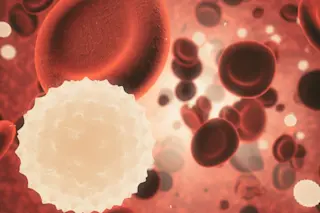Prozac’s approval by the U.S. Food and Drug Administration (FDA) in 1988 heralded the dawn of a new age in treating depression since it focused on serotonin, a brain chemical that, when in short supply, contributes to depression. It was more targeted and had fewer and generally less harsh side effects than the classic treatments— tricyclics and monoamine oxidase inhibitors (MAOIs).
Since then, a total of seven selective serotonin reuptake inhibitors (SSRIs) that essentially help the neurotransmitter serotonin build up in the brain by blocking its escape, have hit the market, as have several serotonin and norepinephrine reuptake inhibitors (SNRIs), which target serotonin and another neurotransmitter associated with the disorder. They are joined by drugs such as Wellbutrin, which don’t fit into specific chemical categories.
Some cases of depression don't respond to medication, however. Scientists have hypothesized that inflammation — which seems to play a role in many aspects of ...














